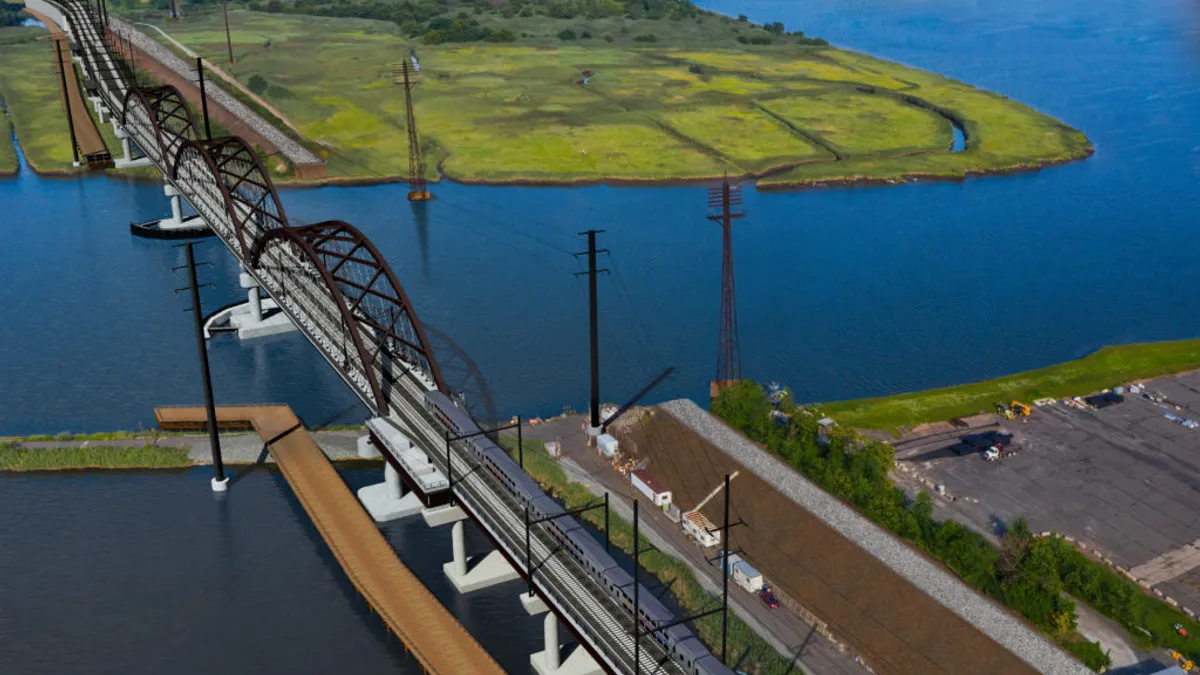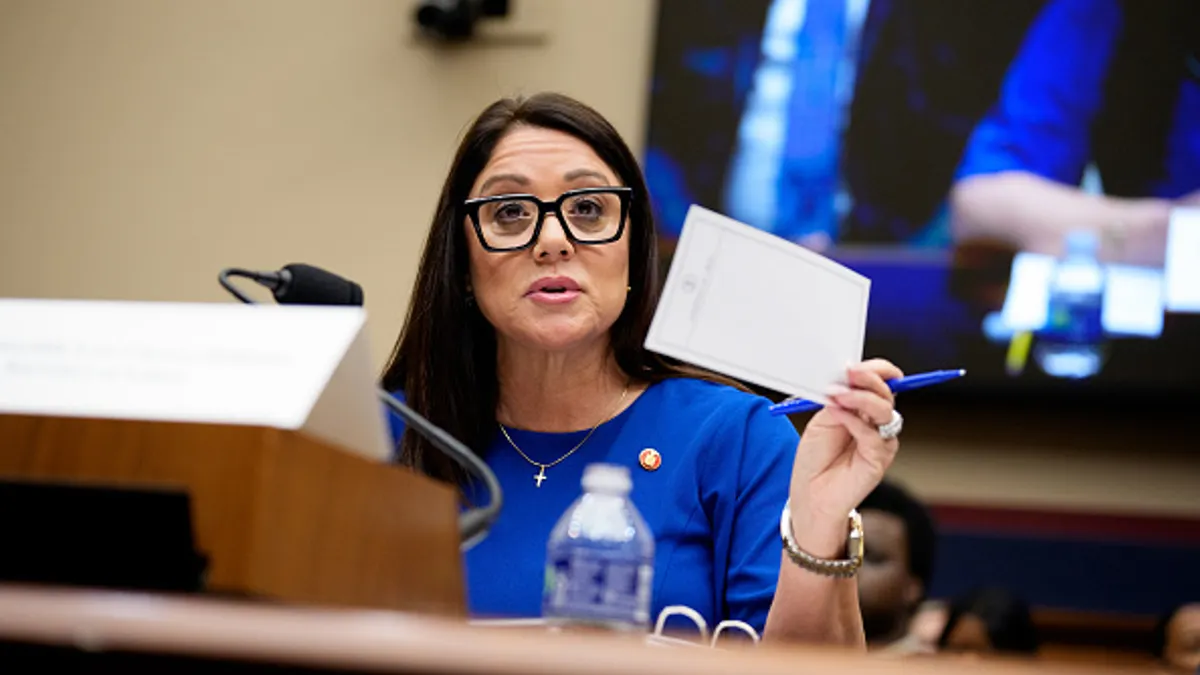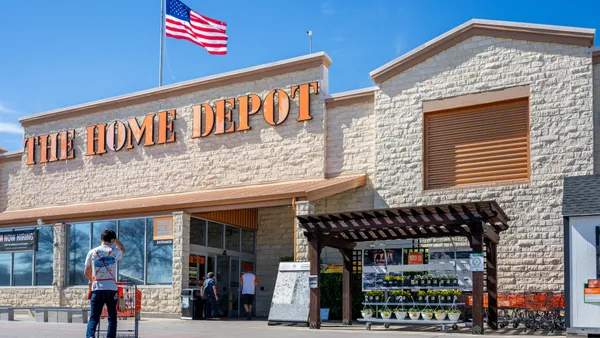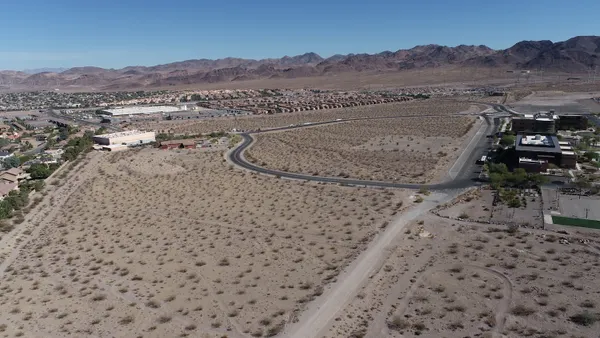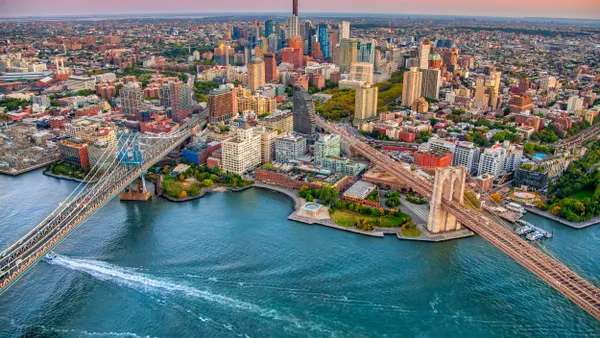Dive Brief:
- Last week, the New Jersey Transit Corp. (NJ Transit) Board of Directors unanimously approved a $1.56 billion contract for the construction of the new Portal North Bridge, a key link in the Northeast Corridor rail line stretching from Richmond to Boston, according to a press release from the governor's office. The contract was awarded to the joint venture composed of Skanska and Traylor Bros. of Evansville, Indiana.
- The long-awaited project will replace the 110-year-old swing bridge over New Jersey's Hackensack River with a 50-foot-high model that won't have to open and close to allow marine traffic through, the release said. The current bridge is infamous for regularly getting stuck in the open position and delaying NJ Transit and Amtrak commuters, which can have a ripple effect up and down the corridor.
- The new two-track span will be built next to the old bridge, and construction is expected to take five and a half years.
Dive Insight:
The railroad bridge is one of the busiest in the Western Hemisphere, and pre-pandemic, it was used by up to 200,000 people and 450 trains each day, the Washington Post reported. Nonetheless, it has also been an "enduring source of major service disruptions," according to the release. A 2019 analysis by the Northeast Corridor Commission found 85 days from 2014 to 2018 where infrastructure failures in the tunnel and on the Portal North Bridge caused more than five hours of passenger delays.
"Few infrastructure projects are as critical to the nation as replacing the aging Portal Bridge," said New Jersey Governor Phil Murphy in the release. "This award will not only bring a bridge that will resolve the long-standing bottlenecks plaguing New Jersey commuters, but will also create well-paying skilled labor jobs in the process."
The first track is slated to open in November 2025 and the last track could be put in service in July 2026, with full completion expected by 2027. The project will create 7,900 new full-time jobs in construction alone, according to NJ Transit spokesperson Mariluz Garcia-Diaz.
The Federal Transit Administration, Federal Highway Administration, state of New Jersey and Amtrak are funding the project. NJ Transit will be the primary owner, and Amtrak will maintain it.
A critical project, long in the making
The Portal North Bridge project is part of the Gateway Program, a larger effort to double rail capacity between Newark, New Jersey, and New York City and improve the most congested 10-mile section of the Northeast Corridor. The series of Gateway projects also includes plans to create two new rail tunnels under the Hudson River and rehabilitate existing 110-year-old tunnels.
The bridge project spans 2.44 miles and includes construction of retaining walls, deep foundations, concrete piers, structural steel bridge spans, rail systems, demolition of the existing bridge and related incidental works, according to the release. The new bridge will allow trains to travel at 90 mph, which is 30 mph faster than the current limit.
As a result, NJ Transit officials believe it will accommodate 14.4% more passenger capacity during rush hours. In the release, NJ Transit CEO Kevin Corbett said the bridge is the largest project in the agency's history.
The bridge replacement was first slated to happen over a decade ago as part of the Access to the Region's Core (ARC) project, a similar effort to improve rail capacity at this choke point. Then in 2010, New Jersey Gov. Chris Christie killed it over concerns about cost overruns and to stave off a gas tax hike. Amtrak, NJ Transit and other local groups reconvened and created the Gateway Program, and Christie threw his support behind the new iteration in 2015 while running for president.
However, while ARC had federal funding, Gateway does not. In 2017 the Trump administration, which initially seemed supportive, walked away from what former President Barack Obama had called "the most important infrastructure project" in the U.S. Finally in January, the Portal Bridge portion of Gateway got federal funding under President Joe Biden, while the $11.6 billion Hudson River Tunnel remains in the environmental review stage.



